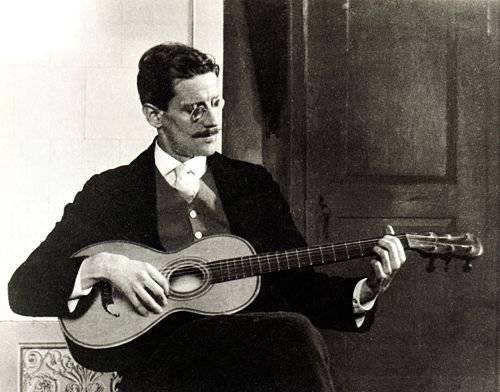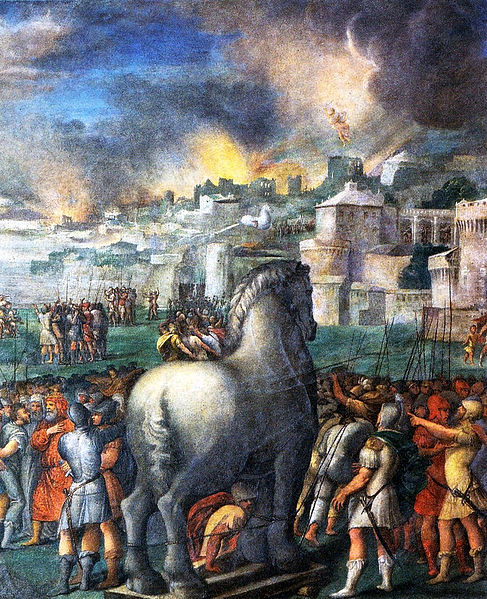Is Catullus losing Lebia? It looks like it. Hear the poem in Latin and follow it in English here.

This non-Latin poem is a skit on the nursery rhyme, “Ride a cock-horse to Banbury Cross” by James Joyce who wrote it to promote a chapter that he was publishing of Finnegans Wake – Anna Livia Plurabelle is Dublin’s river Liffey personified. Joyce belongs on Pantheon Poets for his debt to Homer, and if you do not know this little piece, I think you will like it.

We last saw Goethe revelling in the Roman decor of his study. in this poem to the Moon, he is in a sadder and more tender mood, reflecting sadly on the beauty of nature and the changeability of happiness and affection.

On Troy’s last night, Hector appears to Aeneas in a dream. He tells Aeneas that the city is falling: he must escape and preserve the heritage of Troy by founding a great citadel for the City’s Gods across the seas. Hear the poem in Latin and follow it in English here.

Catullus again fails to count the kisses he wants to give to Lesbia while (courtesy of Vincent Van Gogh) the starry night looks on. See his earlier attempt here.

As Aeneas tells Dido of the fall of Troy, there could not be a sadder contrast between the joyful celebration that Aeneas describes and the dark events that are to come. Follow the extract in English and hear it in Latin here.

Why is “now the time for drinking to be done and the ground to be struck with free foot?” Octavian, the future Emperor Augustus, has defeated Cleopatra and Mark Antony at the Battle of Actium! Hear Horace’s poem on the subject in Latin and follow it in English translation here.

Today’s post is the first poem in Propertius’s works. He introduces us to Cynthia. He is not happy. Whether this is because he hasn’t got her, or because he has got her, we can’t be quite sure, but by the next poem they will be an item. It will be a long and rocky ride together. Cynthia is a skilled musician and lyre player, which is not the only attribute she has in common with the sirens.

Pantheon Poets continues to offer you a direct taste of spoken Latin poetry. You can follow the poems in the original whether you know Latin or not – you might for example be interested in later European writers and curious about what Latin influences meant to them. Today’s post is the final part of the story of Laocoon from Book 2 of Virgil’s Aeneid. He has warned the Trojans not to trust the wooden horse that the Greeks have left – he fears Greeks even when they bring gifts. Now, as fate and the Gods bring the fall of Troy ever closer, Laocoon pays a terrible price for his warning.
